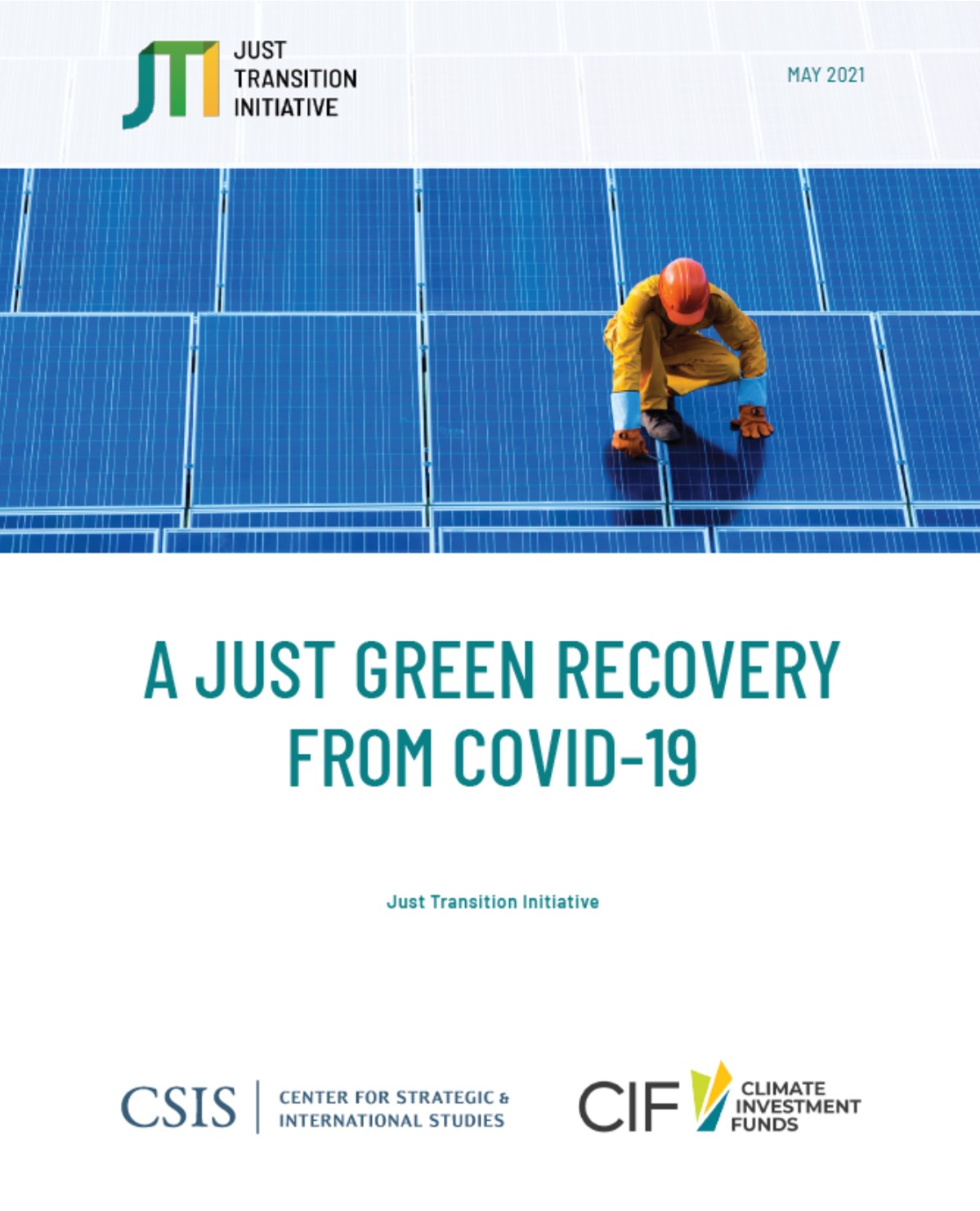The world is responding to an unprecedented health, social, and economic emergency. At the time of publication, over three million lives have been lost due to the coronavirus pandemic. Societies have been severely disrupted—both from the health impacts and the pandemic-induced recession. The International Monetary Fund (IMF) estimates that global output declined about three times as much as in the 2007–08 global financial crisis, in half the time. The World Bank estimates that COVID-19 could push up to 100 million people into extreme poverty.
The COVID-19 recovery window offers a rare opportunity to transform economies and accelerate the green transition. There is renewed openness to large scale public investment as governments seek to restore their economic health, boost long-term growth potential, and accelerate decarbonization. But the inequality exposed by the COVID-19 crisis also demonstrates the need for policies that can advance equity and justice.
This paper examines green recovery measures through the lens of a just transition. It uses three key dimensions of a just transition—distributional impacts, social inclusion, and transformative intent—to assess green recovery interventions around the world. It highlights promising examples of just and green recovery measures in various countries and suggest policy insights with principles and best practices for future action.
